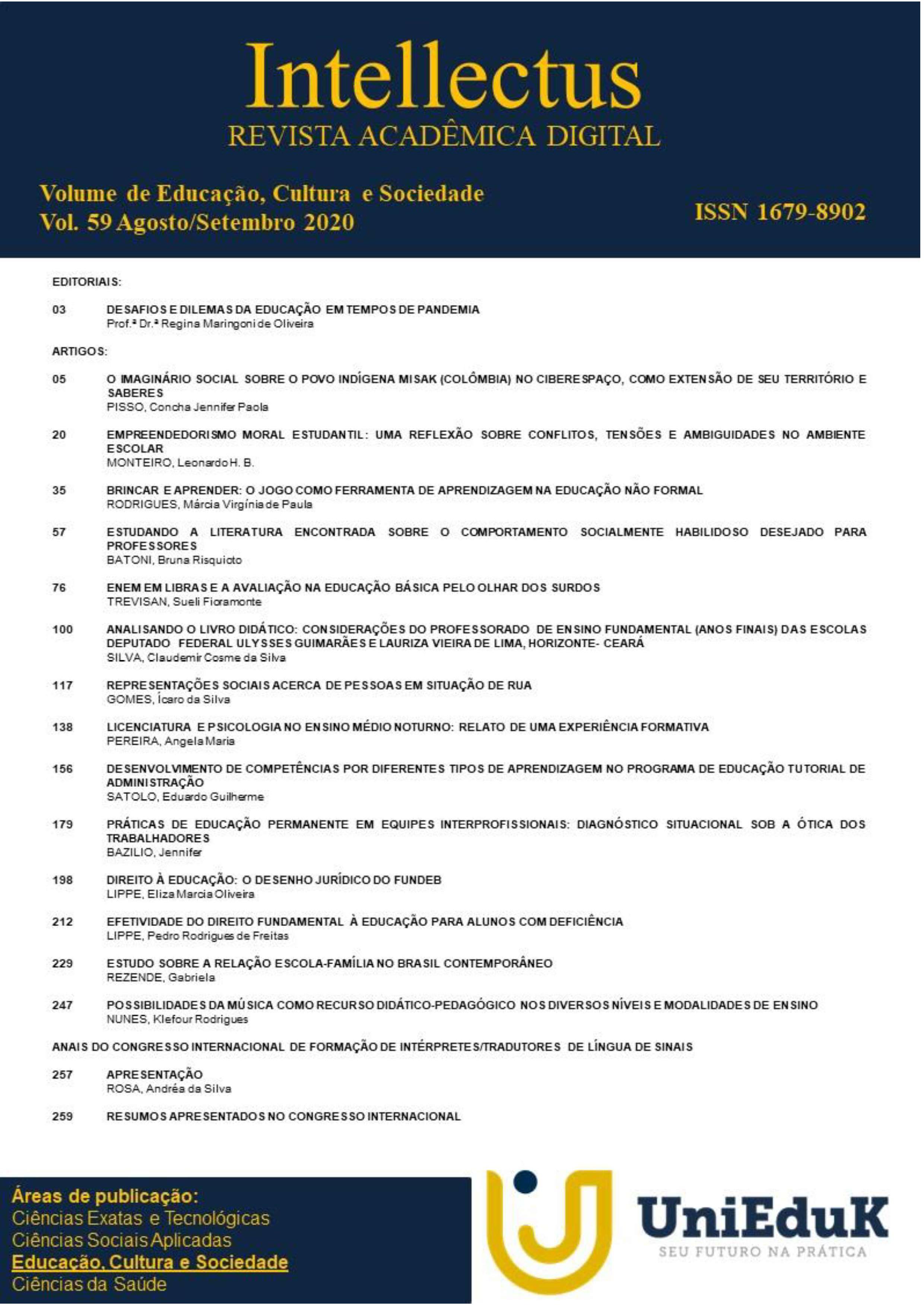PRÁTICAS DE EDUCAÇÃO PERMANENTE EM EQUIPES INTERPROFISSIONAIS
DIAGNÓSTICO SITUACIONAL SOB A ÓTICA DOS TRABALHADORES
Palavras-chave:
Sistema Único de Saúde, Atenção Primária à Saúde, EducaçãoResumo
Objetivos: descrever perfil sociodemográfico e das equipes interprofissionais, analisar como estes avaliam as práticas de Educação Permanente em Saúde, bem como realizar um diagnóstico de tais práticas. Método: estudo transversal, de abordagem quantitativa e qualitativa realizado nas Unidades Básicas de Saúde. Participaram do estudo 124 profissionais das equipes interprofissionais. Os dados foram coletados por meio de entrevista e analisados por estatística descritiva. Para a análise qualitativa seguimos o método de análise de conteúdo. O estudo foi enviado ao Comitê de Ética e Pesquisa da Faculdade de Ciências Médicas da Unicamp, conforme Resolução 466/2012 do Conselho Nacional de Saúde, sendo avaliado e aprovado sob o nº72333417.0.0000.5404. Resultados: Em sua maioria os profissionais são do sexo feminino (80,6%), idade média de 43,6 (Desvio Padrão=8,8) anos, 78 (62,9%) atuam na Atenção Primária por dez ou mais anos. Quanto à formação, 72 (58,1%) cursaram nível superior e 53 (42,7%) realizaram ao menos uma pósgraduação e/ou especialização. Os 81,5% dos participantes apontaram que as ações de Educação Permanente impactaram de forma direta o seu processo de trabalho interprofissional. Conclusão: Os profissionais sentiram-se mais valorizados e competentes, originando melhorias no atendimento, maior preparo e segurança ao executar ações, relatando crescimento individual e como equipe. As informações obtidas contribuem para o conhecimento do perfil profissional das equipes interprofissionais em Unidades Básicas de Saúde e para reflexões da importância na participação efetiva dos profissionais no planejamento das ações educativas.



